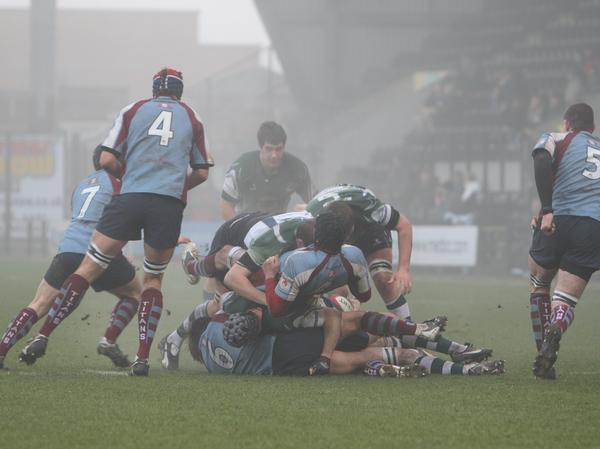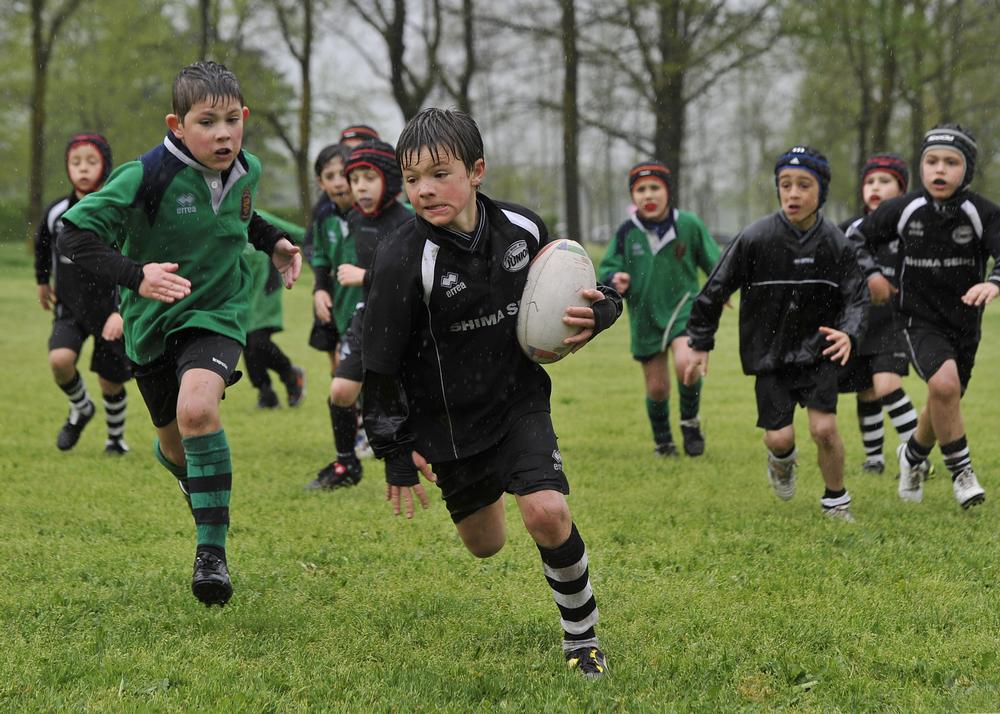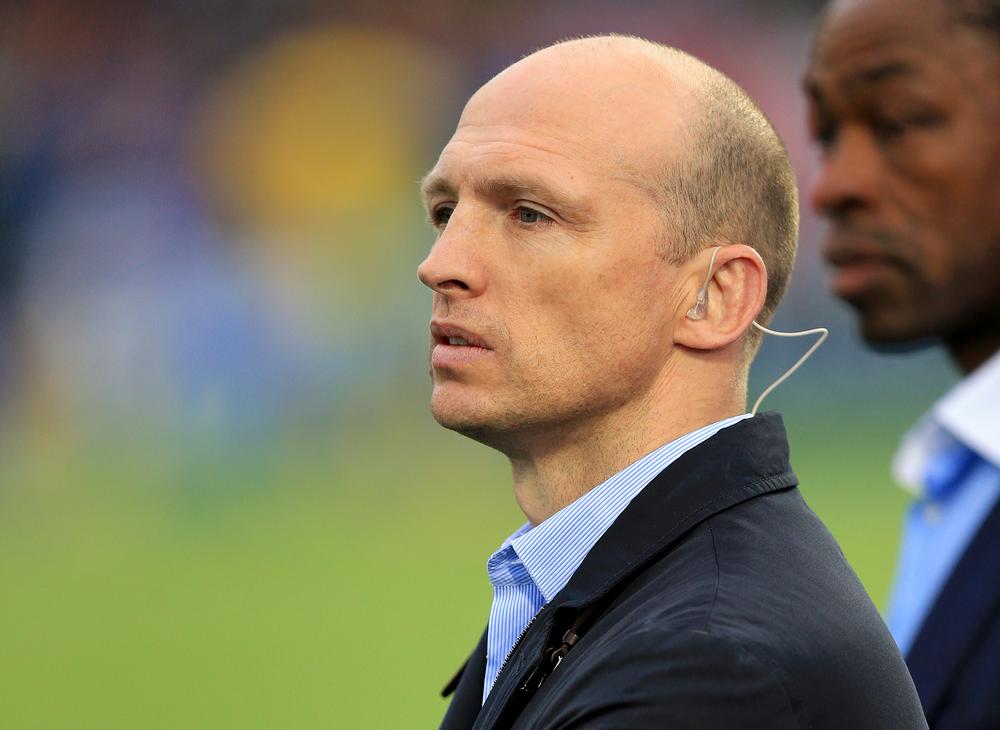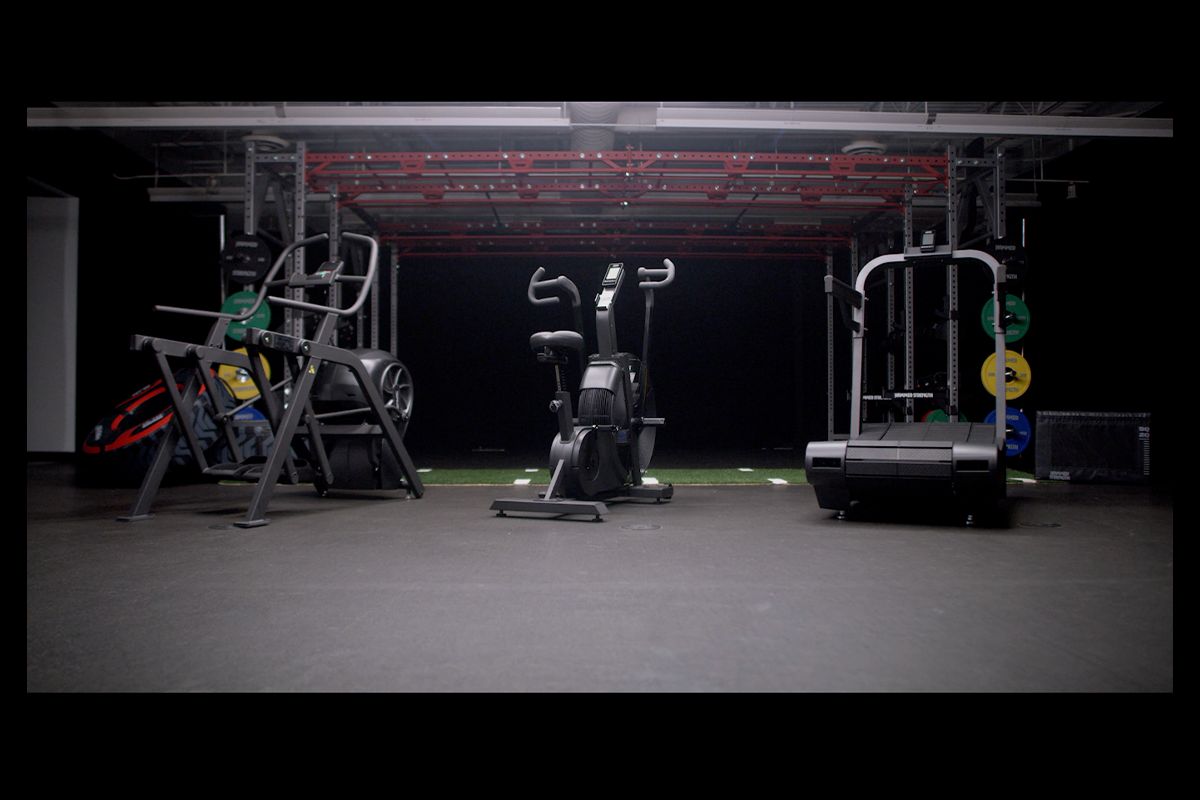Tackling issues: Should tackling in school rugby be banned for medical purposes?
An open letter by 70 medical professionals has called for tackling to be banned in all forms of rugby played at school. Is the call for a ban an over-reaction or a measured approach to a real problem?

An open letter, signed by more than 70 doctors and health experts, has called for a ban on tackling in school rugby games. Warning of a “high risk of serious injury” among U-18s playing rugby, the letter urges schools to move to touch and non-contact versions of the game.
Allyson Pollock, professor of public health research and policy at Queen Mary University of London, is one of those to have signed the letter. “We have become increasingly concerned about the harms and risks of injuries to children playing school rugby,” Pollock says.
“Our concern is that rugby is a high-impact collision sport and studies show that the risks of injuries for those aged under 18 years are high and injuries are often serious. Many secondary schools in the UK deliver contact rugby as a compulsory part of the physical education curriculum from age eleven.”
Pollock is particularly concerned about the types of injuries linked to the unique aspects of rugby. “The majority of all injuries occur during contact or collision, such as the tackle and the scrum,” she says. “These injuries – which include fractures, ligament tears, dislocated shoulders, spinal injuries and head injuries – can have short-term, life-long, and life-ending consequences for children.
“Studies also show that injuries from rugby can result in significant time loss from school. Rugby injury, disillusionment with the game and interference with education, are the most common reasons for children giving up rugby.”
INJURY CONCERNS
The evidence appears to show tackling is the cause of most injuries in rugby. Figures from a 2013 study – entitled Epidemiology of Time-loss Injuries in English Community-level Rugby Union, published in the British Medical Journal – estimates that 50 per cent of injuries in grassroots rugby are caused by tackles. Another study, by Ulster University last year, came up with an even higher figure, with 63 per cent of the injuries it studied resulting from tackles.
The reaction to the letter, however, has been mixed. While many health experts agree that it is important to address any causes of injuries to children playing sports, many have called for a balance to be struck between the dangers of playing rugby and the benefits it offers.
“There have already been changes to address issues of safety in school rugby,” says professor Russell Viner, officer for health promotion at the Royal College of Paediatrics and Child Health. “While providing safe sport is vital, it is crucial we appreciate the benefits gained from children playing sports in school.
“Currently around a third of children aged between two and 15 in the UK are overweight or obese, making it imperative that we make as much effort as possible to encourage more children and young people to take up regular exercise. Although there are risks attached to any sport, it is imperative that we don’t let this prevent our children from getting out and taking part in much needed physical activity.”
SOCIAL BENEFITS
The Rugby Football Union (RFU), the sport’s national governing body, responded to the letter by pointing out the benefits of children playing the game. “Rugby is a fantastic sport for children,” says RFU’s development director Steve Grainger.
“It brings many physical and social benefits, including increased confidence, self-esteem, self-discipline and enjoyable physical exercise as part of a team. Teachers constantly comment on behaviour improvements when rugby is introduced in school.”
The RFU also points out that as part of its new grassroots strategy, it will introduce a gradual progression to the game, with a structured approach covering introduction, playing, teaching and refereeing from under seven to under 18.
The structured approach is designed to provide building blocks to the 15-a-side game, allowing players time to learn the basics before contact and specialism is gradually introduced. These will be implemented across the country from September 2016.
PLAYER POWER
Former and current players’ reaction to the calls for a ban on contact rugby at schools has been less diplomatic. Former England hooker and current rugby pundit Brian Moore says: “Banning contact rugby till age 18 effectively precludes full rugby after; it’s more dangerous to start unskilled, powerful adults tackling.”
Another former England star, Matt Dawson said playing full contact rugby from a young age will make rugby safer. “Context is needed before some medics blame the game for injuries,” he says. “And lets not forget that it can help with the child obesity issue.”
TAKING PART
The letter signed by the health professionals is also critical of government plans to grow the game at grassroots level. “We’re concerned about the government’s plan in England to increase participation in rugby in schools.” Pollock says.
“Under the United Nations Convention on the Rights of the Child (UNCRC), governments have a duty to inform children about risks of injury. Yet, in the absence of a comprehensive system for injury surveillance and primary prevention this cannot occur.
“Under UNCRC, governments also have a duty to protect children from risks of injury. The UK is party to the convention, so must ensure the safety of children.”
The government, however, says there are no plans to alter its approach to children’s rugby. In a statement issued by the Department for Education, a government spokesperson said: “The government has no plans to ban tackling in school rugby. We expect schools to be aware of the risks associated with sporting activities and to provide a safe environment.
“Team sports, such as rugby, play an important role in children’s development. They can help children develop positive traits such as fair play, leadership and resilience; an important part of our commitment in preparing children for life in modern Britain.
“Schools have the flexibility to organise and deliver a diverse PE curriculum which best suits the needs of their pupils. We expect schools to be aware of the risks associated with sport, to provide a safe environment for their pupils and to ensure that their teachers and other staff have the appropriate training.”
So it seems that contact rugby is here to stay. For those concerned about the issue, the Association for Physical Education and the Royal Society for the Prevention of Accidents provide advice to schools on how to reduce the risk of injuries: www.afpe.org.uk



Recreation Assistant (Dry Site)
Party Leader
Cleaning Assistant
Duty Manager
Duty Manager
Team Leader (Harrow School Fitness Club)
Centre Manager (Leisure)
Director of Operations
Fitness Motivator
Recreation Assistant/Lifeguard (NPLQ required)
Membership Manager
Recreation Assistant
Swim Teacher
Swim Teacher
Chief Executive Officer, Mount Batten Centre
Swimming Teacher
Swimming Teacher
Company profile

Featured Supplier

Property & Tenders
Company: Knight Frank
Company: Belvoir Castle
Company: AVISON YOUNG
Company: London Borough of Bexley
Company: Forestry England














